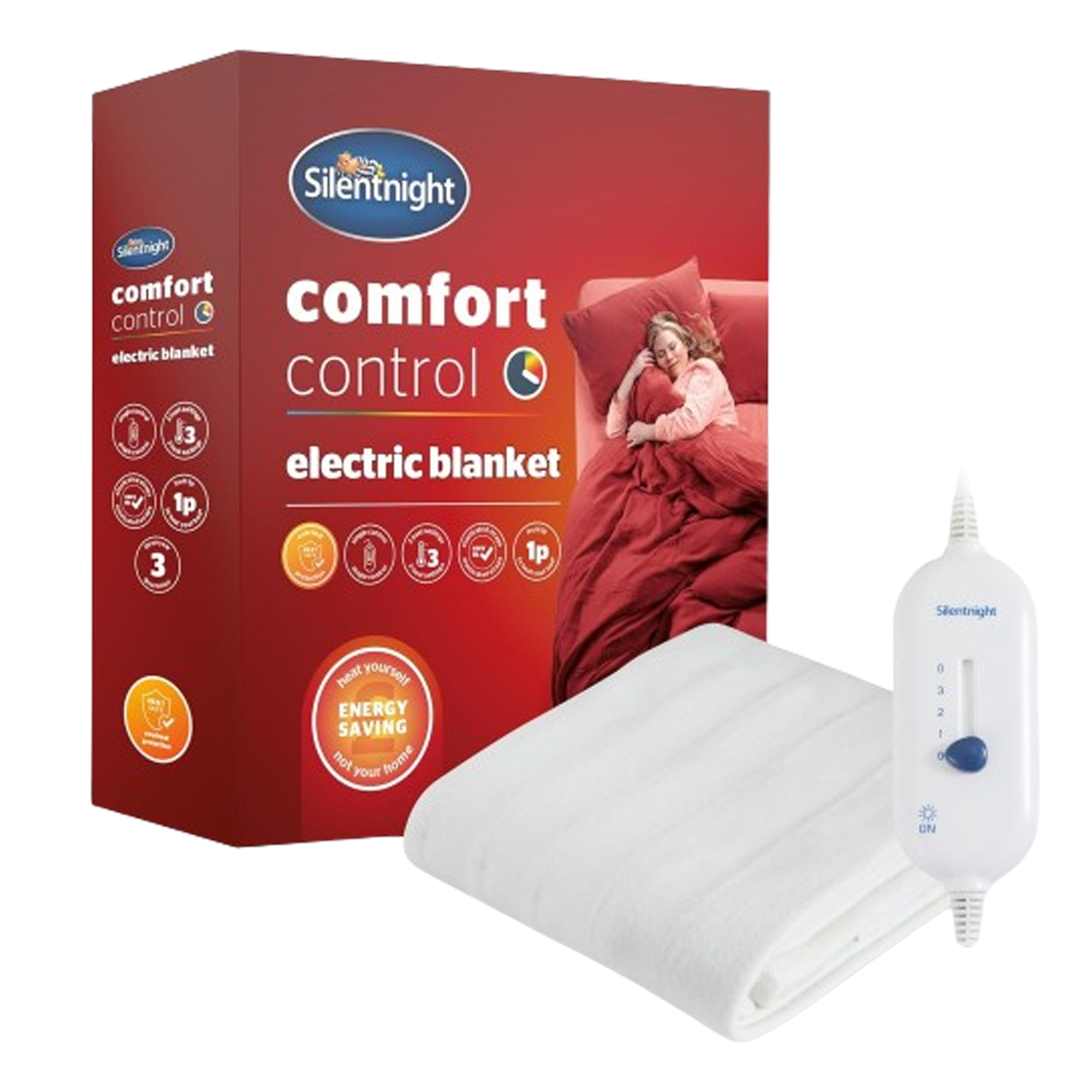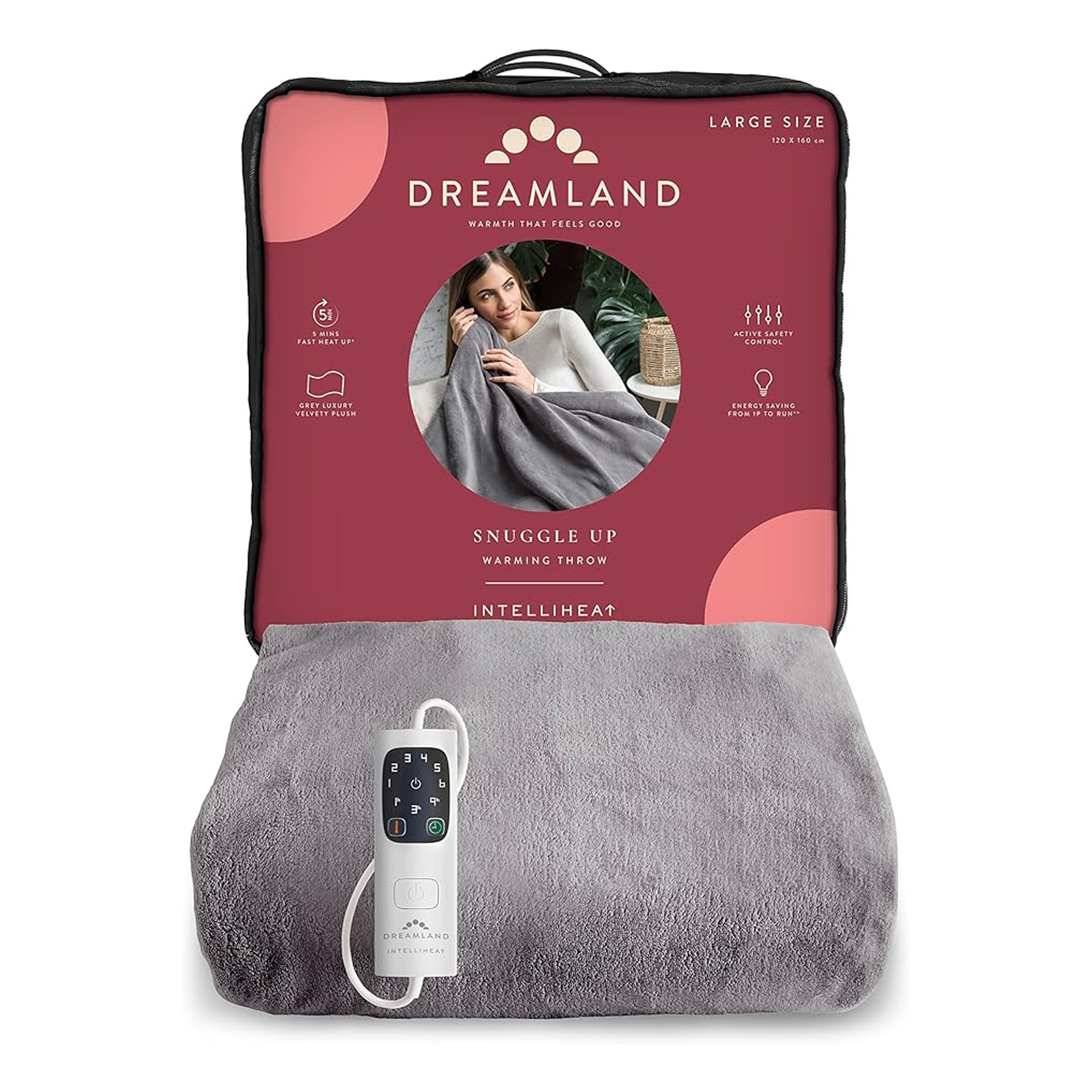I've tested both electric blankets and heated throws and these are the key differences you need to know before investing in one
The terms might be used interchangeably but they serve very different purposes around the house

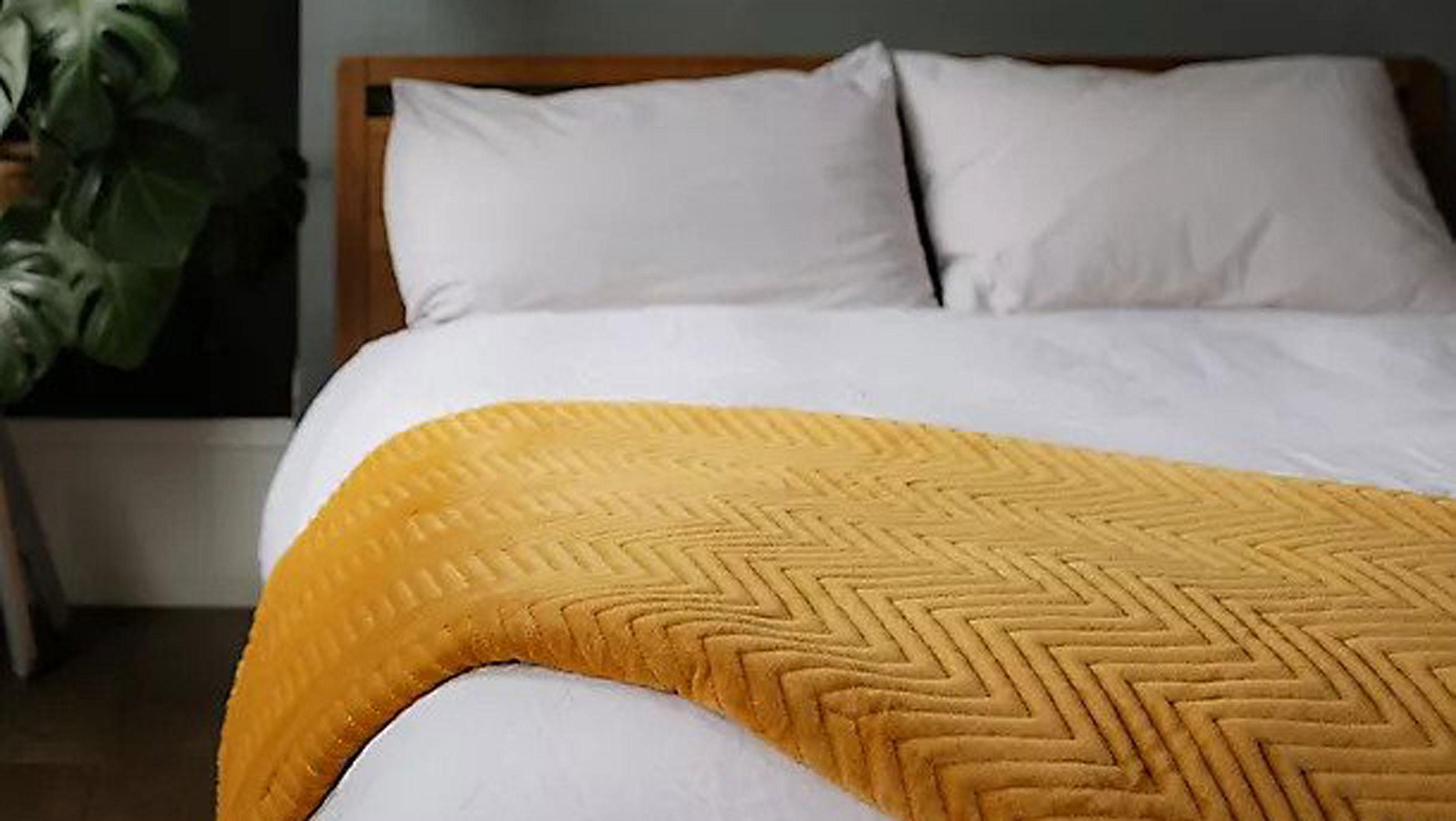
Feeling a little chilly but don’t want to put the heating on? Electric blankets and electric throws are game changers. Costing very little to run, they allow you to warm yourself up without heating a whole house.
Finding the best electric blanket can feel like a minefield. Part of the process is working out if you want an electric blanket or an electric throw.
As someone who has reviewed all the big brands of electric blankets and throws, I’m here to talk you through what the difference is between the two. I’ll get you clued up and cosy in no time.
What are the key differences?
Although the term electric blanket and electric throw are often used interchangeably, they are actually quite different, and do different jobs.
1. Placement
Placement is the main difference between an electric blanket and an electric throw.
‘An electric blanket goes on your bed, either as a strap- or elasticated skirt-secured underblanket you lie on top of, or an overblanket that you lie under,’ says Evie Clark, home buyer at Lakeland. ‘Heated throws are for snuggling under on the sofa or in your favourite armchair – although you can use them as a blanket on your bed too.’
‘Electric blankets provide warmth directly to the bed, which can help to keep you warm while sleeping,’ says Assunta Trano, Product Expert at Dreamland UK.
Sign up to our newsletter for style inspiration, real homes, project and garden advice and shopping know-how
‘Electric throws are typically draped over your lap, shoulders or body while sitting or lounging,’ says Assunta from Dreamland UK. ‘Underblankets are the perfect option for warming your bed while you sleep and throws are great for warmth whilst sitting, watching TV or reading.’
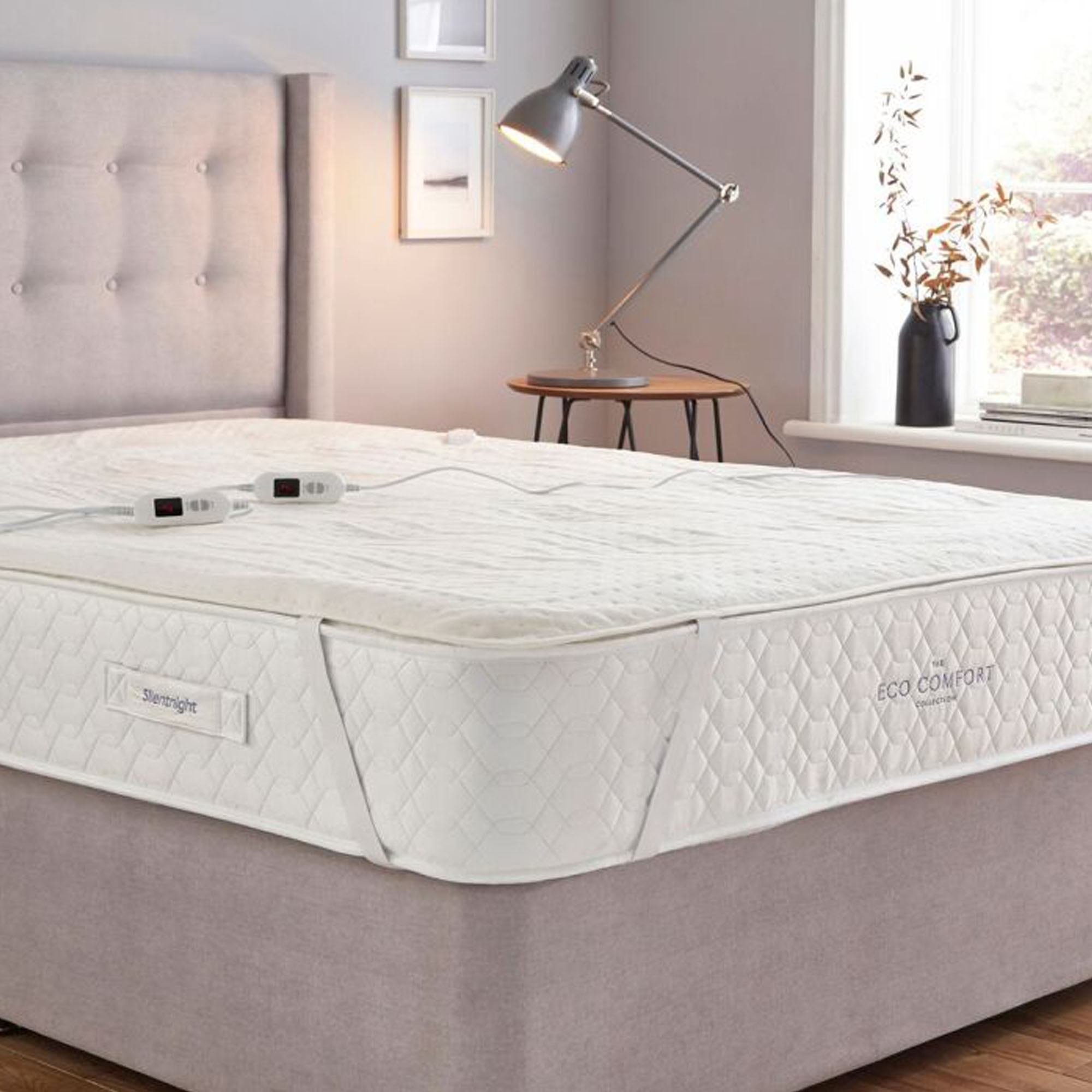
2. Materials
If you look at electric throws and electric blankets side by side, you’ll quickly see they’re pretty different.
‘Another difference between throws and underblankets is that the materials that they are made from will differ,’ says Assunta from Dreamland UK. ‘The Sleep Tight Deluxe Fleecy Mattress Warmer is made with a fleecy fabric, which is soft and insulating. Fleece is known for retaining heat, making it an ideal material for a mattress topper.’
‘However, the Cosy Up Silky Soft Faux Fur Warming Throw is made with faux fur, which is typically softer and more luxurious than fleece,’ explains Assunta from Dreamland UK. ‘The silky texture gives it a plush feel that is more comfortable to wrap around you. The materials will differ depending on the product that you opt for at Dreamland as there are multiple different designs to choose from.’
‘Unlike an underblanket, the throws come in a variety of colours and styles so that you can choose one to fit with the aesthetic of your home,’ says Assunta.
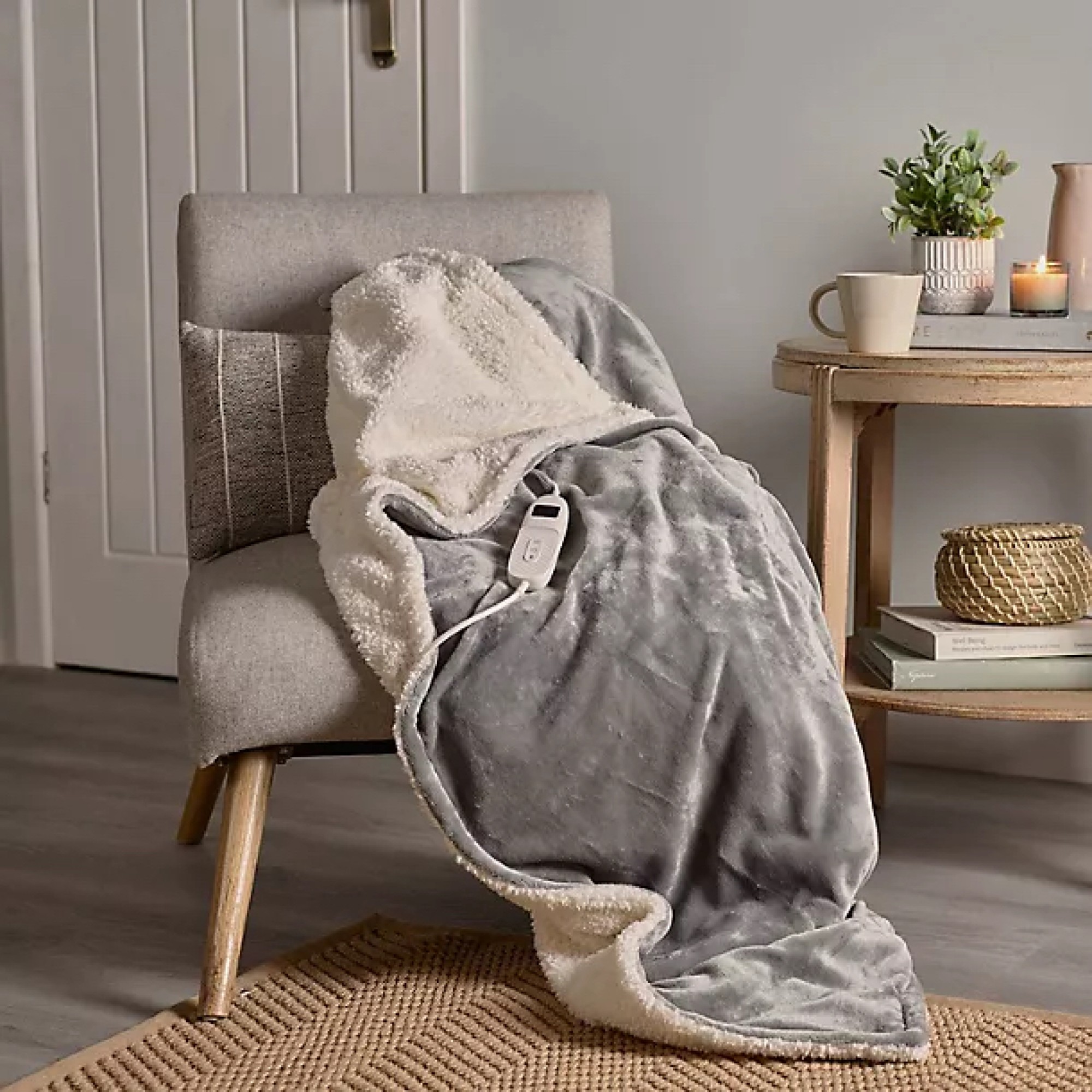
3. Price
During my testing I’ve noticed that electric blankets – ie. the ones that go on top of your mattress – are quite often a lot more affordable than electric throws. But they do have a limited use, as you can only use them on your mattress. Having dual controls does tend to make electric blankets more expensive.
‘The prices will differ for both depending on the product,’ says Assunta at Dreamland UK. ‘At Dreamland we offer a range of products at different price points.’
4. Controls
It’s pretty common for electric blankets to have dual controls. You will pay more for a dual-control electric blanket. But you and your partner can then control your own side of the bed and not have arguments over what temperature the bed should be.
However, electric throws tend to be designed for a single person to use, so these don’t tend to have dual controls.
How are electric blankets and heated throws similar?
There’s a lot of similarities between heated throws and heated blankets, so it’s easy to see why people don’t know they’re different products.
1. Purpose
The most obvious similarity is that heated blankets and heated throws do similar jobs. They’re textiles with electric wires in them that warm you up on chilly days. They are so popular because they can just warm you up, rather than inefficiently warming an entire room or space.

2. Speed at heating up
During my extensive testing of electric blankets, I have always been pleased to note how quickly both electric blankets and throws warm me up.
‘Dreamland’s range of warming throws and underblankets use state of the art Intelliheat technology to create the optimum temperature for your body, ensuring that you stay warm
when you need it, and they both have fast heating times; warming up within 5 minutes of turning them on,’ says Assunta from Dreamland UK.
3. Cost to run
Both electric throws and electric blankets are affordable to run, especially compared to sticking the central heating or an electric heater on.
‘They are both extremely cheap to run and cost around the same, with underblankets costing around 6p per 8 hours and throws costing 8p per 8 hours,’ says Assunta from Dreamland UK. ‘However, the precise cost to run will be dependent on domestic electricity prices at the time of use.’
4. Safety features
Electric blankets and electric throws all have fairly similar safety features, namely the auto shut-off feature. This is there to stop you or the blanket overheating.
‘Throws and underblankets at Dreamland both have the same safety features and automatic timers,’ says Assunta from Dreamland UK. ‘Their patented built-in total safety protection system will automatically shut off if the blanket becomes unsafe, providing peace of mind.’
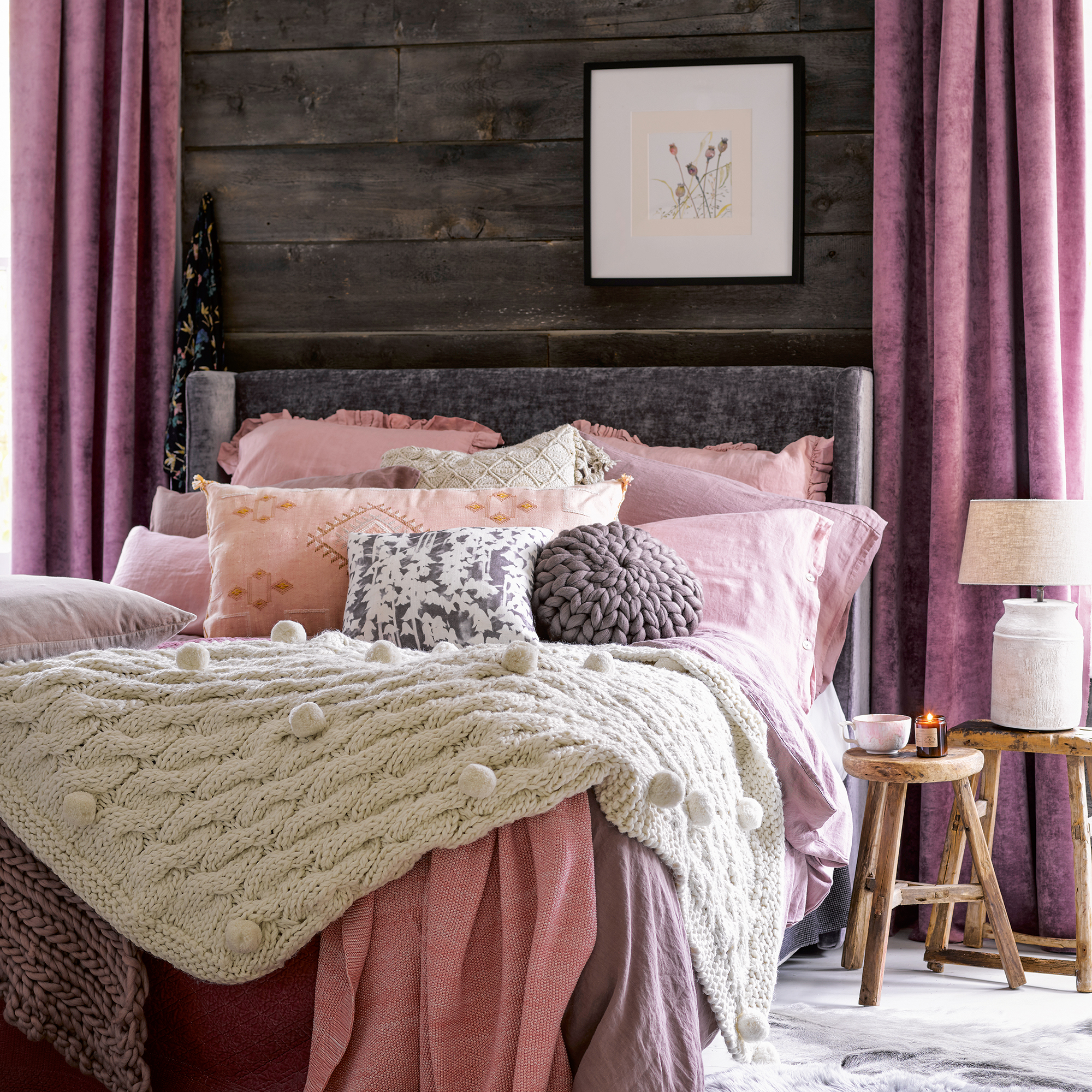
How to decide which is best for you
The real test of whether you should get an electric blanket or throw is to think about when and where you’ll use it. When are you most feeling you could do with a little extra warmth? This will then tell you a lot about which heated textile you need in your life. If it's cosy living room ideas you're after then a throw will be better suited, while an electric blanket is better for warming up a bed.
‘When picking an electric blanket, consider where in your home you’ll use it, how much flexibility and control you need, and the type of materials you prefer,’ says Assunta from Dreamland UK. ‘A traditional under blanket is slightly more cost-effective but must be strapped to your mattress. Throws can be used anywhere in the home and come in different colours and materials.’
Can you sleep on a heated throw?
I admit that I have dozed off under an electric throw, but I wouldn’t consider using an electric throw to sleep on top of. The products aren’t designed for this, and they have cables running through them that are quite pronounced and would be uncomfortable.
‘We don’t recommend that you sleep on top of your electric throw as they are not designed for this and you risk damaging the wires,’ says Assunta from Dreamland UK.
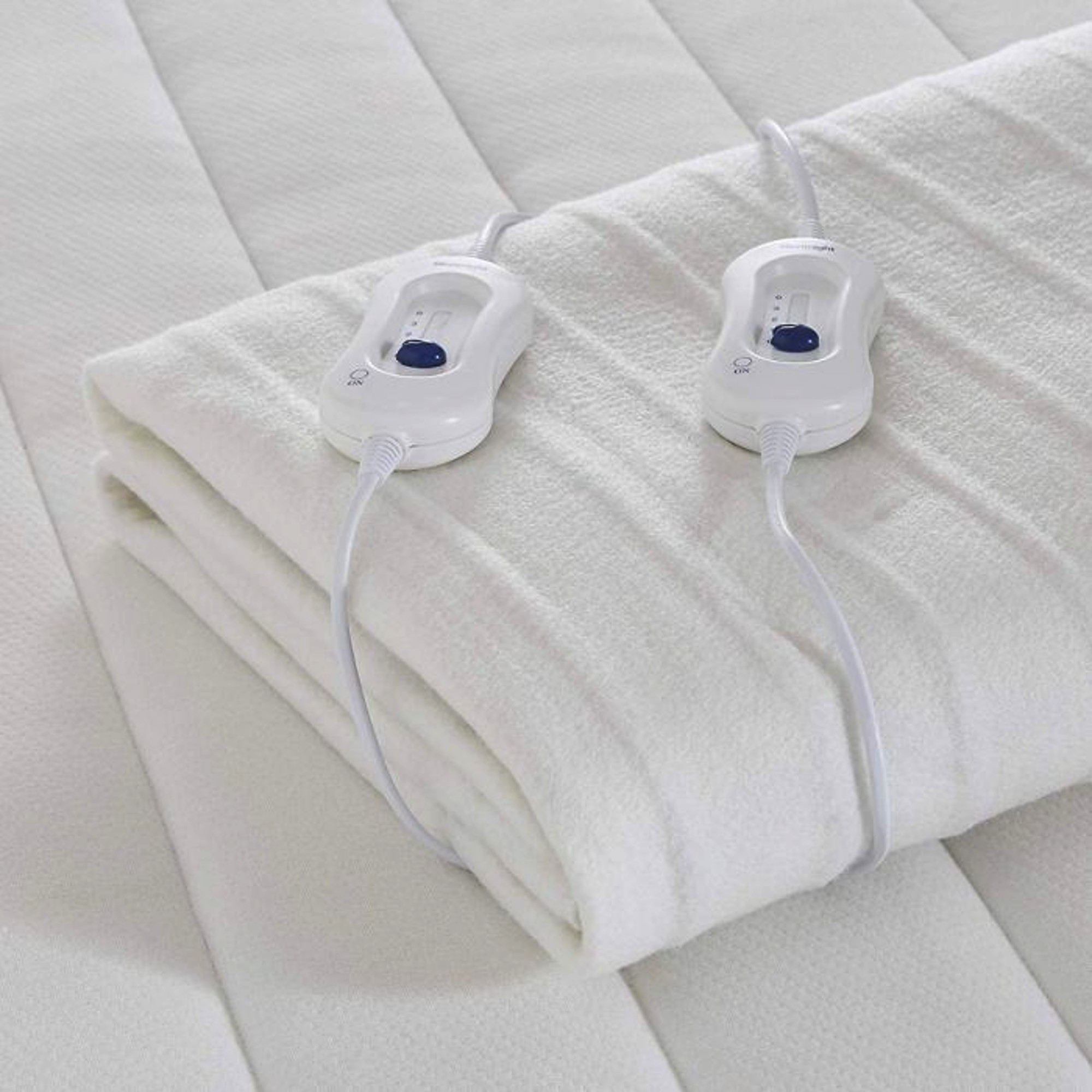
FAQs
Do heated throws cost a lot to run?
It really depends on what you think of as ‘a lot’. Everyone’s budgets is different. However, the cost to run an electric blanket can be around 1p per hour – and the same goes for an electric throw. But this does depend on various things such as the energy price cap, your tariff and how high you have your throw cranked.
‘The better insulated your house is, the lower the setting you’ll need to use on your heated blanket or throw to stay warm,’ says Evie Clark, Homebuyer at Lakeland. ‘Putting your heated blanket on a low setting for a little while before you get into bed rather than waiting and blasting your bed with high heat to warm it up quickly when you get in will save energy use too.’
Is it cheaper to use an electric blanket or heating?
It’s almost certainly cheaper to run an electric blanket rather than the cost to run your central heating.
‘Using an electric blanket from Dreamland is significantly cheaper than running central heating. Heated blankets offer targeted warmth, consuming minimal electricity compared to whole-space heating. Their cost-effectiveness varies based on local energy prices, home heating efficiency, and selective usage,’ says Assunta from Dreamland UK.
Our favourite heated blankets and throws
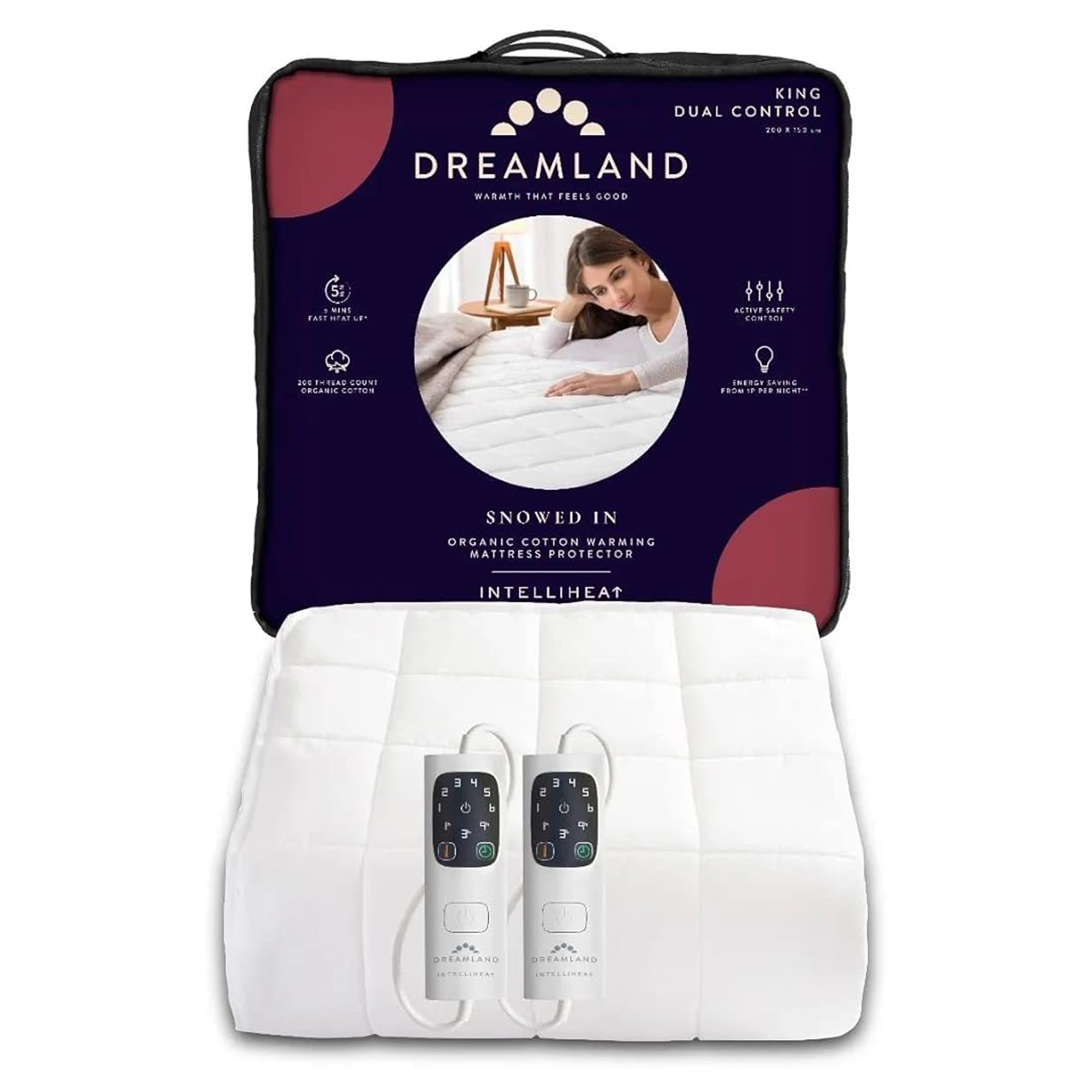
This heated mattress protector impressed our expert review Amy Lockwood with its comfortable sleep surface and wide range of temperature settings.

Zoe is a freelance journalist and content strategist. Her career has traversed kids' publishing, women's lifestyle magazines, luxury property and content marketing. She's worked for the BBC, STYLIST, Marie Claire, heat, Wallpaper*, InStyle, The Sunday Times Style, Ocado, Christie's and more. She now regularly writes about interiors and sleep for a range of media – what she doesn't know about mattresses isn't worth knowing.
